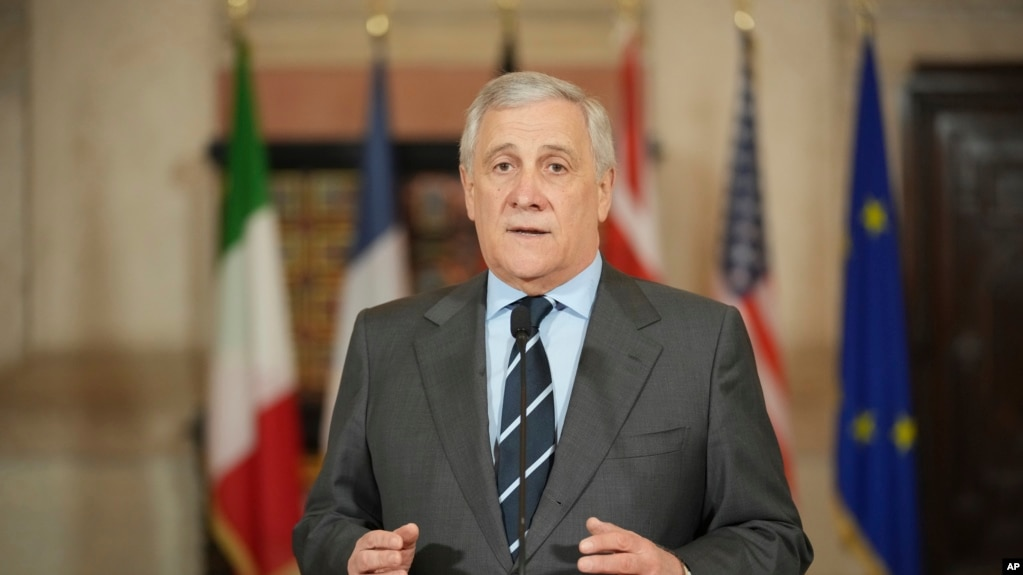
The Italian Foreign Minister Antonio Tajani traveled to Syria on Friday to encourage a transition of power after Islamist rebels toppled President Bashar Assad. He said Europe should review sanctions against Damascus now that the political situation has changed.
Tajani hosted a meeting in Rome on Thursday with officials from the foreign ministries of Britain, France, Germany, Italy and the United States. Before the meeting, he spoke with counterparts from Turkey and Saudi Arabia. He said the aim was to coordinate different post-Assad initiatives and that Italy was ready to make proposals on private investment in health care for the Syrian population.
It was crucial that equal rights for Syrians must be recognized, Tajani said as he headed for meetings with U.S. Secretary of State Antony Blinken and European foreign ministers. His comments were a reference to concerns about the rights of Christians and other minorities under Syria’s new authorities. Syria’s de facto ruler is Hayat Tahrir al-Sham (HTS), an Islamist group long designated a terrorist organization by the United States and the United Nations.
“The initial messages from Damascus are positive. That’s why I will be there tomorrow to encourage this new phase, which will help stabilize the international situation,” Tayani said.
He told reporters that the European Union should discuss possible changes to the sanctions regime against Syria. “This is an issue that should be discussed because Assad is no longer here, this is a new situation, and I think the signals that are being received are encouraging and should be further encouraged,” he said.
Syria has been under sanctions from the United States, the European Union and others for years because of Assad’s brutal crackdown on anti-government protests, which began peacefully in 2011 but spiraled into civil war.
Hayat Tahrir led a lightning rebel offensive and drove out Assad on Dec. 8, ending decades of family rule. The Syrian uprising and civil war that killed an estimated 500,000 people from 2011 until Assad’s fall has been under pressure.
The United States has gradually eased some of its punitive measures since Assad fled to Russia. The Biden administration decided in December to withdraw a bounty on a Hayat Tahrir al-Sham leader.
Syria’s new leaders have also been urged to respect minority and women’s rights. Many of Syria’s Christians, who made up 10 percent of the country’s population before the civil war, have either fled Syria or supported Assad out of fear of Islamist insurgents.




